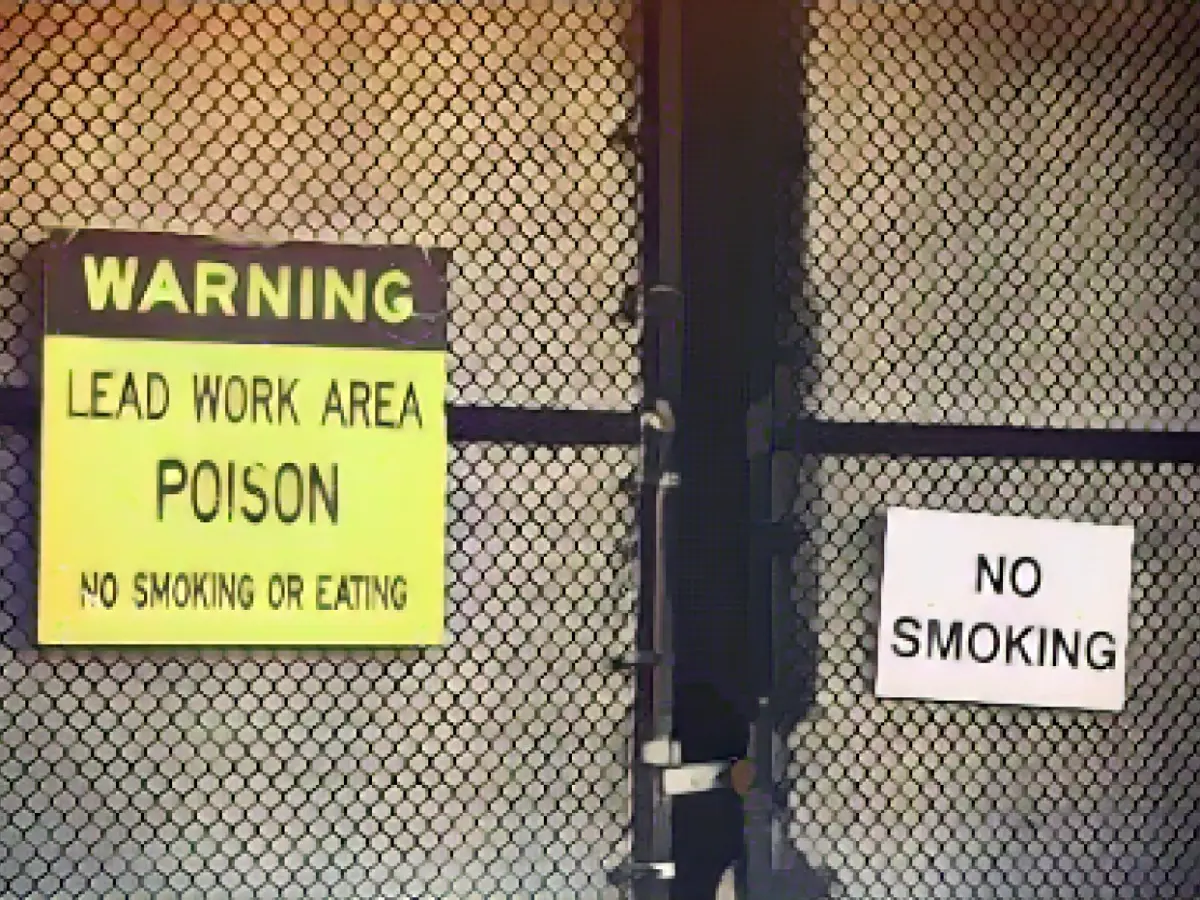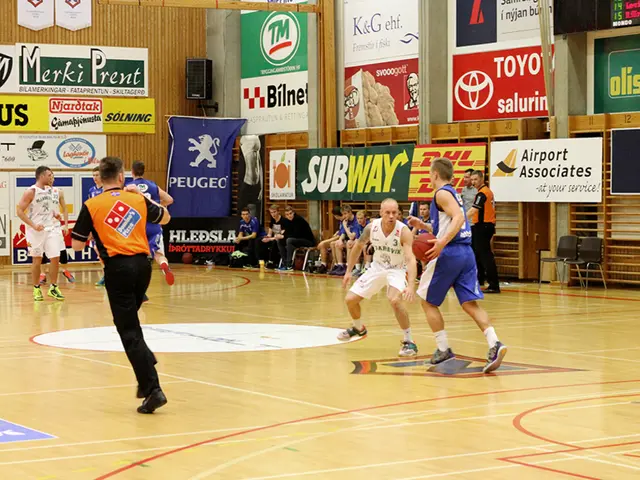Lead poisoning drug prices skyrocket, leaving hospitals in a bind
The problem at hand? The new version of the treatment now costs a staggering $32,000 per treatment cycle - nearly ten times the price of the imported variation.
"The issue we're facing with this price hike is that hospitals can't keep this medication in stock," said Dr. Diane Calello, executive director and medical director of the New Jersey Poison Control Center.
Calello explained that although lead poisoning is rare in the United States, particularly in children, it still occurs. High levels of lead in the blood can cause seizures, comas, and brain swelling (encephalopathy).
When hospitals run out of this medication, they often have to search for or purchase it. "We might need two or three days to find or acquire it," Calello said. "If your child is in a coma, having seizures, or is critically ill, two or three days is too long."
This is not the first time the price of this treatment, Calcium Disodium EDTA or EDTA, has drastically increased. In 2016, toxicologists reported a 2,700% increase in price to Congress. Valeant Pharmaceuticals, which acquired the drug's manufacturer in 2013, increased the price from approximately $1,000 to nearly $27,000 per treatment cycle.
Martin Shkreli, the former CEO of Valeant, often associated with the nickname "Pharma Bro," became infamous for buying a decades-old medication used to treat a parasitic infection that affects individuals with HIV and dramatically increasing its price by 5,000% overnight.
However, Valeant used this price hike strategy for numerous medications, sparking public and congressional backlash. In 2018, the company changed its name to Bausch Health.
In 2021, there were shortages of Calcium Disodium EDTA as a result of price increases and public reaction, and in October 2022, the FDA allowed the import of a French version of the SERB-owned BTG Pharmaceuticals to offer US hospitals an alternative, only implementing emergency measures when other options weren't available. The wholesale purchase price for this version is $3,500, according to a company spokesperson speaking to CNN.
Bausch continues to manufacture its version of the drug. When a new company, Rising Pharmaceuticals, obtained FDA approval to market its US version of Calcium Disodium EDTA, it ended the possibility of importing the French version of Calcium Disodium EDTA, despite the company saying that the remaining US-available products would still be available for purchase.
According to Erin Fox, an expert on drug shortages and assistant director of pharmacy at the University of Utah Health, each line of Rising's medication costs over $32,000 to procure for wholesalers.
That's more than eight times the cost of the imported French version.
"We have a long way to go to solve the high-drug-price problem in the United States," Calello said.
Dr. Aaron Kesselheim, professor of medicine at Harvard Medical School and director of the Regulatory, Therapeutic, and Legal Program in the Department of Pharmacoepidemiology and Pharmacoeconomics at Brigham and Women's Hospital, added, "The fact that EDTA now costs more at new manufacturers is not limited to a single company, but is part of a larger, systematic problem."
"The approval of profit-driven decisions poses a threat to patients," he said.
Rising Pharmaceuticals did not respond to CNN's request for comment.
The cost of refilling recommended EDTA doses in a hospital could reach nearly $50,000, said Kait Brown, clinical director of Poison Centers of America.
"We're dealing with the reality that our hospitals may only have limited resources for storing these treatments," said Brown.
EDTA is one of three primary medications used in chelation therapy when the "blood lead level" is extremely high - typically above 45 micrograms per deciliter. Explained Dr. Kevin Osterhoudt, medical director of the Poison Control Center at Children's Hospital of Philadelphia, "Lead can be described as a thief that infiltrates children's homes and steals their potential, as even small amounts of lead are toxic to brain cells and nerves and can lead to lower IQ scores and cognitive deficits."
Children are often exposed to lead from lead-based paints in their homes, with the exposure level increasing over time.
Recently, children were exposed to lead in certain cinnamon apple sauce, with over 50 potential cases reported in children under 5 years of age. The FDA is currently investigating the source of contamination, which is believed to originate from an Ecuadorian cinnamon supplier.
Chelating agents primarily work by grabbing onto lead particles and helping to remove them from the body. Outside of intravenous EDTA infusions used in hospitals, physicians also use citric acid (a oral capsule) and dimercaprol (BAL) for chelation.
When the blood lead level is extremely high, perhaps more than 70 micrograms per deciliter, a combination of Amberlite Resin or Dimercaprol and EDTA may be the best option, according to Osterhoudt. He also noted that EDTA and dimercaprol are currently hard to find, with the former due to its new price and the latter due to the bankruptcy of its manufacturer, Akorn Pharmaceuticals. According to the American Society of Health-System Pharmacists' Drug Shortage Database, there are no other manufacturers of Succimer.
Dr. Maryann Amirshahi, medical director of the National Capital Poison Center, which studies drug shortages, explained that this compromise in the EDTA pricing situation makes things more challenging.
"The bigger problem we need to consider is not just the price, but that we don't have the medications we need to treat this illness," Amirshahi said. "I believe unfortunately that our medical healthcare system is failing." With costs increasing, is the lower price the trade-off if continuous medication supply is maintained for critical, life-threatening conditions?
A severe lead poisoning case is particularly challenging for pharmaceutical companies, as the incidents have become increasingly rare in the past 50 years. "In the past 50 years, we've drastically reduced lead levels to where we hardly ever use these drugs," said Dr. Ellen Woolf, professor of pediatrics and director of the Environmental Medicine Program at Harvard Medical School. "I see children with elevated lead levels all the time, but I rarely have to administer these chelating agents."
Between 2019 and 2022, US poison control centers reported an average of 2,188 lead exposure incidents per year. By November 2022, however, they reported 2,093 cases, according to US poison control center data. The data suggests that these incident counts underestimate the true number of cases, as they only include instances where lead is the sole suspected toxin, and voluntary reports do not capture all cases.
The same data show that there are, on average, 200 reports of use of these three chelating agents per year. By November 2022, there were 3 reports of BAL, 21 reports of EDTA, and 169 reports of citric acid usage.
Fox of Utah Health explained, "The relatively low usage of EDTA makes the market for such medications unattractive for pharmaceutical companies."
"We have very few, very few people who are poisoned and need this medication, so the market is very small," she said. "Therefore, it makes little sense for several companies to manufacture this medication."
Brown from Poison Centers of America added, "This is a broader trend we're seeing in the field of toxicology."
However, Fox noted, "The Rising EDTA price serves as an excellent example of how a pharmaceutical company can set any price it wants and that's what the market will bear."
For Kesselheim, this indicates a broken market and the need for alternative solutions.
"If the so-called 'market' for a patent-free medication for a rare disease like this collapses, and no private company is able to manufacture the medication unless the price is astronomically high, why not invest in the medicine?" he said. "Finance the production publicly so that patients can get the life-saving medications they need."
As examples, Kesselheim cited efforts by non-profit manufacturers like CivicaRx, which works with hospitals to produce generic drugs when there are supply shortages or price increases.
Currently, hospitals may rely on one another to share scarce supplies of these rare chelation medications. Calello from the New Jersey Poison Control Center noted that this is a particularly challenging time to access these medications due to the increased number of children being at home during the COVID-19 pandemic, with fewer inspectors and support services available.
"This is the worst time a child with lead poisoning has ever experienced," Calero said. "Now, we have a medication that we either can't get or that's too expensive."
If you have questions about lead exposure or need emergency assistance, call the Poison Help Center at 1-800-222-1222 or visit PoisonHelp.org for more resources.

Read also:
This lead poisoning treatment drug has seen a significant price increase, with hospitals struggling to acquire and afford the medication. The drug, Calcium Disodium EDTA or EDTA, is often used in chelation therapy when high levels of lead in the blood are detected. Without the medication, hospitals may face delays in finding or purchasing replacement supplies, which can have serious consequences for children with lead poisoning.
In 2016, toxicologists reported a 2,700% increase in the price of EDTA to Congress. Valeant Pharmaceuticals, which acquired the manufacturer of the drug in 2013, had previously increased the price from around $1,000 to nearly $27,000 per treatment cycle.
Even though severe lead poisoning has become less common in the U.S. due to lower lead levels, children are still at risk from exposure to lead-based paints in their homes. When the exposure levels increase over time, lead can cause brain damage and lower levels of IQ.
In a recent incident, children were exposed to lead in certain cinnamon apple sauce, with over 50 potential cases reported in children under 5 years of age. The FDA is currently investigating the source of the contamination.
The high cost of EDTA is making it increasingly difficult for hospitals to acquire the medication, and as a result, some children with lead poisoning may not receive timely treatment. This can be especially problematic during the COVID-19 pandemic, when fewer inspectors are available and children are spending more time at home, exacerbating the shortage of resources to store these treatments.
One solution to this problem could be public financing of the production of these life-saving medications to ensure that they are available to patients who need them. Non-profit manufacturers like CivicaRx have demonstrated the effectiveness of this approach, working with hospitals to produce generic drugs when there are supply shortages or price increases.
Regardless of the approach taken, it is clear that the high cost of essential medications like EDTA is a pressing issue that needs to be addressed to ensure that all patients, especially children, have access to the care they need.
This article is based on information from the original source and has been revised for clarity, tone, and readability.
Sources:








